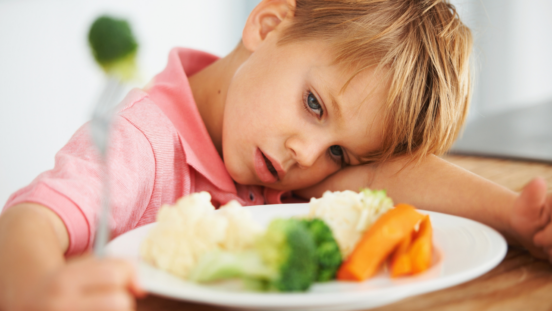The top nutrients fussy eaters don’t get enough of, according to a naturopath
Does your child refuse to eat broccoli? Read on.
By Dr. Stephanie Rubino BSc, ND
Are you looking for ways to support your child’s growth and development? Consuming nutritious foods is an obvious step to getting the essential nutrients needed for overall health, however not all kids like to eat spinach and broccoli!
Whether they are picky eaters, on restricted diets, or think they are too busy to eat well, limited diets can lead to nutrient deficiencies. Let’s discuss key vitamins and minerals that will support the health and development of our child – starting today.
Nutrients for bone support
Approximately 90% of peak bone mass has been built by age 18. The importance of supporting bone health actually begins during pregnancy and continues throughout childhood and beyond.
A number of different factors impact bone health, such as genetics, gender, ethnicity, exercise, and lifestyle, plus nutritional factors like calcium, vitamin D, and protein intake. In cases of dietary limitations, appropriate intake of these nutrients in supplement form may be beneficial.

If you’re child is a fussy eater, it could lead to nutrient deficiencies.
Although calcium is one of the most well-known nutrients for building strong bones and teeth, other nutrients such as magnesium, vitamin D3, and vitamin K2 are also required for bone health.
Vitamin D3 is needed for the proper absorption of calcium, while vitamin K2 activates osteocalcin, a bone-forming protein.
Vitamin K2 also makes sure calcium is directed to the bones instead of soft tissues. In addition, multivitamin and mineral supplements often provide magnesium, an important mineral that supports over 300 enzymes, contributes to bone structure, and is involved in energy production and muscle contraction.
Nutrients for immune support
On average, children can have about 6–10 colds per year. Current evidence suggests that nutrients such as vitamins C and D and zinc, may help prevent colds and shorten the duration and/or lessen symptoms.
In addition to supporting immune health, vitamin C is an antioxidant that supports the growth of teeth, bones, gums, and ligaments, along with helping to absorb iron, a vital mineral. Iron supports growth and development in children, is involved in the production of red blood cells, and plays an important role in immune function.
Zinc is a key mineral involved in wound healing, growth, and development, and supports the function of immune cells.

Eating a mix of healthy fruit and vegetable will help boost your child’s immune system.
What’s the solution?
Multivitamins designed for children provide an array of nutrients to support growth and development. Multivitamins with added whole-food concentrates, such as organic fruits and vegetables, provide a blend of vitamins, minerals, enzymes, and phytonutrients, offering further support for young ones to help fill nutrient gaps.
Appropriate intake of nutrients, along with movement, fresh air, and good sleep, will help provide a successful foundation of health for active and growing children.
Dr. Stephanie Rubino BSc, ND
Naturopathic Doctor & Expert at Whole Earth & Sea




